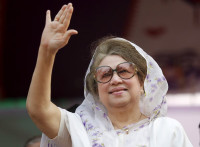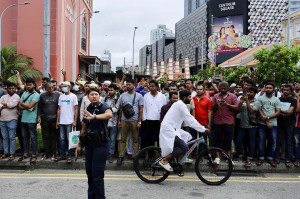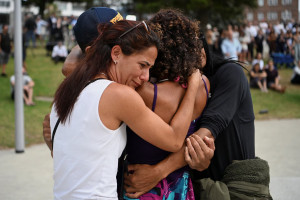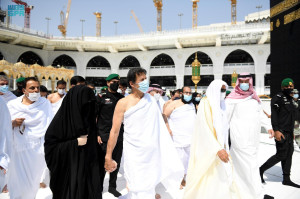Tue, Dec 30, 2025
World
Rare pictures of India's extraordinary Jayalalitha
Jayaram Jayalalitha, who died in the city of Chennai on Monday night, was one of India's most influential and controversial politicians.
bookmark
BBC
Published at : December 6, 2016
Updated at : December 6, 2016 18:47
Jayaram Jayalalitha, who died in the city of Chennai on Monday night, was one of India's most influential and controversial politicians.
One of India's most successful actresses, her political career was marked by allegations of self-enrichment to fund an extravagant lifestyle.
Her admirers say she played a key role in the economic development of the southern state of Tamil Nadu - but critics say she encouraged a personality cult and fostered corruption in the state.

Jayalalitha was born on 24 February 1948. Her father was a lawyer who died when she was only two years old.

She excelled at school and, after studying music and dance, began training as an actress.

Naturally charismatic, she was introduced to politics by actor-turned chief minister, MG Ramachandran (left), with whom she starred in many of her films.

A 1965 film starring MG Ramachandran and called One Among the Thousand launched her career.

Over the ensuing three decades she became one of India's most popular, and high-profile artists, appearing in more than 140 films.

She played a double role in the 1969 hit film The Slave Girl.

Jayalalitha starred with the thespian Shivaji Ganesan (right) in her 1970 film Our Uncle.

In 1972, she played the role of a goddess in the film The Games The Godess Plays with the superstar Gemini Ganesan.

A public function where Jayalalitha launched her political career.

MG Ramachandran died in December 1987. Less than two years later, Jayalalitha overcame resistance to take over the AIADMK party, becoming Tamil Nadu's first ever woman opposition leader.

Jayalalitha actively worked to build a personality cult and huge cut outs of her pictures dominated the Tamil Nadu landscape.

She was barred from standing in the 2001 elections because she had been sentenced to five years imprisonment following allegations she had illegally obtained state-owned property.

In 2014 she became the first Indian chief minister to be disqualified from power after she was convicted of using her position to amass a huge property portfolio as well as a collection of expensive jewellery and luxury cars.

However, eight months later, in May 2015, the conviction was overturned and she was reinstated as chief minister of Tamil Nadu within days.




 16.12°C Kathmandu
16.12°C Kathmandu












%20(1).jpg&w=300&height=200)

